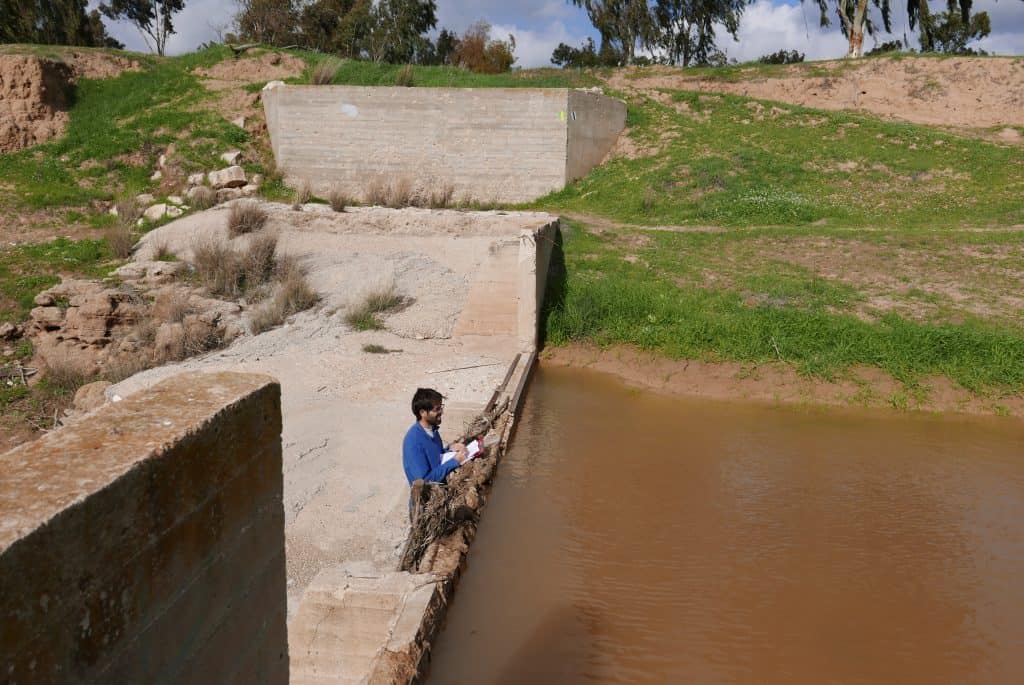Hydrology
The department for Hydrology at Geoteva takes a central role in most of our firm’s project. The staff conducts characteristic analyses for each project that is connected to the realm of environmental science, such as: Geology, Hydrology, Geomorphology, and land conservation. In each project, we work to present recommendations and findings for the performance of the projects according to progressive environmental principles of soil and water conservation.

How Do You Keep Balance In Nature?
Some outstanding products of our department include:
- Written reports regarding management and treatment of runoff waters according to the instructions of the National Outline Plan 34 ב’ 3 for Photovoltaic energy facilities, neighborhoods, industrial areas, and more. In these management reports, complex hydrological analyses are conducted for the project site using models and programs such as GIS and HEC-RAS.
- Planning for land conservation under the jurisdiction of the Ministry of Agriculture and providing end solutions for agricultural areas suffering from land erosion.
- Planning of longitudinal infrastructures for water and gas transportation, especially in terms of agricultural lands and stream crossings.
- Reports for groundwater protection according to the instruction of the National Outline Plan 34 ב 3. These include Hydro-geological analyses for projects in which polluting materials may be used and are located where the groundwater sensitivity is defined medium-high.
- Local geology and the accompanying impacts in the areas of scenery, hydrology, land, and seismic impacts according to the Israeli Standard 413.
- Model building and Illustrations for comprehensive analyses of future flooding scenarios.
- Allowing for consultation and development of Hydrometric monitoring stations for the performance and measurement of erosion and runoff.
Water Sensitive Urban Design
Israel is a country located in a Semi-Arid Mediterranean Climate which faces the combined challenges of decreasing precipitation on the one hand and increasing pressures of development on the other; both of which directly impact the country’s water resources.
The large scale of urban construction and impervious surfaces has caused palpable increases in runoff waters flowing into the sea by way of drainage systems rather than naturally infiltrating into the ground below, thereby impacting the ability of groundwater sources to be recharged by natural waterflows.
In response to this, Geoteva focuses on urban planning in consideration of natural water flows. This shift in construction techniques works to direct and preserve runoff waters in the appropriate areas in order to preserve the integrity of our natural water sources. Cleaner construction techniques can help to recharge groundwater sources while reducing peak flow rates in drainage areas in such a way which reduces flooding and damage to stormwater infrastructures.
One major consideration, however, is that development includes industrial and commercial areas whose byproducts expel pollutants which threaten natural water sources. In industrial and commercial areas, draining systems must be planned in consideration of natural hydro-geology of the site in question in order to reduce seepage and pollution into clean natural sources.
At Geoteva we prioritize designing urban and rural spaces in a manner which works with natural water flows and ensures that polluted sources will not contaminate our limited invaluable groundwater resources.




